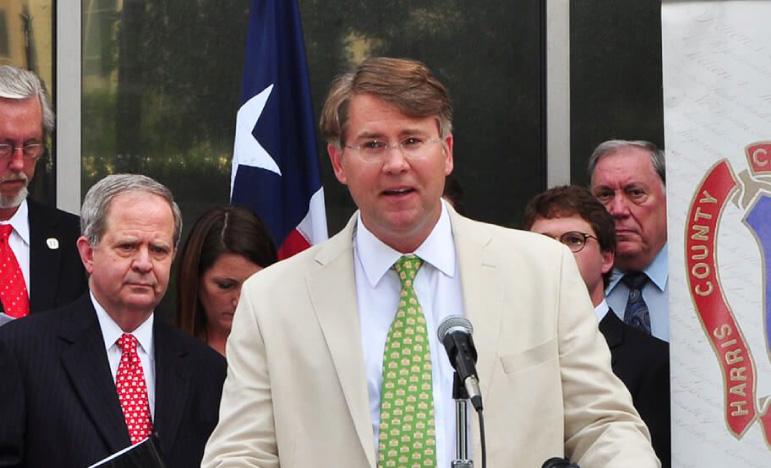Featured On
Case Verdict
Criminally Negligent Homicide Not Guilty
Case Verdict
Felony Assault of a Security OfficerDismissed
Case Verdict
Unlawfully Carrying a Weapon Dismissed
Case Verdict
.17 Breath Test Not Guilty
Case Verdict
1st Offense DWI Not Guilty
Case Verdict
2nd DWI Not Guilty
Case Verdict
Felony Aggravated Sexual Assault of a Minor Dismissed
Case Verdict
Felony Aggravated Assault of a Family MemberDismissed
Case Verdict
Felony Possession of a Controlled Substance Dismissed
Case Verdict
8th DWI Arrest Dismissed
Case Verdict
Felony DWI 3rdDismissed
Case Verdict
.10 Breath Test Dismissed
Case Verdict
Criminally Negligent Homicide Not Guilty
Case Verdict
Felony Assault of a Security OfficerDismissed
Case Verdict
Unlawfully Carrying a Weapon Dismissed
Case Verdict
.17 Breath Test Not Guilty
Case Verdict
1st Offense DWI Not Guilty
Case Verdict
2nd DWI Not Guilty
Case Verdict
Felony Aggravated Sexual Assault of a Minor Dismissed
Case Verdict
Felony Aggravated Assault of a Family MemberDismissed
Case Verdict
Felony Possession of a Controlled Substance Dismissed
Case Verdict
8th DWI Arrest Dismissed
Case Verdict
Felony DWI 3rdDismissed
Case Verdict
.10 Breath Test Dismissed
houston DWI attorney
Board Certified Houston DWI
and Criminal Defense Attorney
When you're facing criminal charges, it can be a serious matter that affects every aspect of your life, including your freedom. You could face jail time and fines, of course. But a conviction can mean a criminal record that will follow you every time you apply for a job, try to rent a home, apply for a loan, or try to obtain a professional license. If you share custody of a child, a criminal conviction can even affect your child custody and visitation arrangements. Your reputation, career, and family life can be at stake in a criminal trial. That's why it's essential that you hire a Houston defense attorney who has extensive experience in the field of criminal defense like Doug Murphy. The costs of hiring an attorney who isn't up to the task can be very high.
Free Client Consultation
During the initial consultation, we take the time to sit down and get to know every client and fully understand their case. We'll also investigate your case, and we won't take the police version of events as gospel. After a full investigation, we'll give you our honest and straightforward advice with a strategic plan to protect your rights. We'll give you options for the best strategic approach to meet your goals.

Proven Results.
Excellent Reputation.
Respected by Peers.
Board Certified.
In DWI cases, you only have 15 days from the date of your arrest to request a hearing to prevent the suspension of your driver's license.
Call Doug Murphy now. His proven experience and skills can help you obtain the best possible results.
Cases we handle
Doug Murphy is one of a few lawyers in Texas who is Board Certified in both criminal law and DWI. He has extensive knowledge and experience in criminal defense and represents clients in a wide range of cases.
Driving while intoxicated can be a serious charge in Texas. Charges can range from a Class B misdemeanor for a first DWI to habitual felony DWI. Moreover, driving with a child under 15 in the car while intoxicated is a state jail felony that can carry a penalty of up to two years in jail.
To schedule a free consultation
contact us or call 713-229-8333.
Creating a strategic
plan for your case will
involve building a
strong defense.
The prosecutor must prove each element of the crime beyond a reasonable doubt, and we must contest their case against you every step of the way. Your defense may include:
- Challenging the state's evidence or witnesses against you.
- Moving to suppress evidence or witnesses against you.
- Using police reports or video to question the police version of events.
- Challenging any violation of your constitutional rights.
- Arguing an affirmative defense like self-defense, defense of others, defense of property, necessity, entrapment, insanity, or mistake of fact.
Clients often tell us they feel relieved after consulting with us and hearing our plans for a strong defense; our results in the courtroom back this up. But the costs of failing to hire an expert in criminal defense can be high.
Drug Defense
Drug crimes come with sobering penalties under Texas law. From marijuana possession to distributing controlled substances, the state will vigorously pursue any drug offense. If you're facing a drug crime in Houston, your priority should be hiring the best drug crime lawyer in the Houston area. Texas laws are way behind the times compared to the advance of how marijuana and THC products are used... Read More
Assault
Assault, aggravated assault, and similar crimes are considered violent crimes in Texas. While the legal consequences of a conviction can be high, the social consequences of an assault conviction can be far more so. That's why you need a vigorous defense from an attorney with experience in criminal defense like Doug Murphy. Read More

Driving Defense
When you're on the road, you may assume that any offense you could face is just a “traffic violation” and no big deal in Texas. But when these traffic violations generally can turn into greater allegations of violations of the Texas Penal Code such as DWI, hit and run, reckless driving, racing on a highway, and evading arrest. The consequences of a conviction for one of these offenses can still be serious... Read More
Federal Crimes
The state of Texas will prosecute most crimes in Houston. But you could face federal charges for crimes violating federal law, large-scale criminal activity, or crimes involving multiple states. If you're facing a federal charge, you must get an attorney well versed in handling serious federal crimes as soon as possible. Read More
Hiring an experienced and accomplished leader can be the decision that saves your career, your freedom, or your life.
Additional Matters We Handle
Intoxication Assault and Manslaughter:
When someone dies or is seriously injured during an alleged DWI crash, the consequences can be severe. A conviction for intoxication assault alleging serious bodily injury or intoxication manslaughter is a third or second-degree felony in Texas. Read More
ALR Hearings:
With an arrest for a DWI comes the potential loss of your license, but you can contest this through a separate Administrative License Revocation hearing. Not all attorneys will handle these important matters, but Doug Murphy understands the importance of helping you retain your license and the essential strategic advantage that an ALR hearing can give you when you have a skilled and experienced lawyer helping with your DWI case. Read More
BWI:
Boating while intoxicated is a crime in Texas, and a conviction can carry serious penalties. However, boaters are often prejudged by law enforcement officers who find evidence of alcohol on a boat. Roadside sobriety tests are not suitable for boaters, but tests developed by law enforcement in the boating environment are even less reliable. If you have been charged with a BWI in Houston or other parts of Texas, you will need DWI defense lawyer who knows how to discredit ridiculous seated sobriety tasks. Read More
Prostitution:
We have seen an increase in prostitution stings in Houston and around Texas, but police now focus on arresting people for soliciting prostitution. In fact, Texas law was recently changed, making it a felony to solicit prostitution. In many cases, these stings cast an overly wide net, so if you are facing a charge for prostitution or soliciting prostitution, you need a strong defense. We have been successful in helping those wrongfully accused of soliciting prostitution avoid a felony criminal conviction. Read More
White Collar Crimes:
White-collar crime often involves money rather than violence. However, crimes such as fraud, bribery, money laundering, copyright infringement, or even corporate liability for these offenses can carry steep penalties in Texas. Our firm can provide skilled representation for those who are facing accusations of financial crimes. Read More
3G Offenses:
3G offenses are serious felonies that are named after a section of the Texas code. Crimes such as murder, sexual assault, aggravated robbery, and human trafficking are felonies in Texas, and a conviction can result in serious jail time and fines. If you are facing a 3G felony charge, you will need a qualified criminal defense attorney like Doug Murphy to protect your rights. Read More
Theft:
Theft is among one of the most frequently charged crimes in Houston. From motor vehicle theft to shoplifting, burglary, larceny, and robbery, our experienced attorneys have handled it all. In reality, the police are not infallible; law enforcement and prosecutors often make mistakes in the investigation and prosecution of these crimes. That is where an experienced criminal defense lawyer can help. Read More
Expungement:
We all make mistakes, and Texas law recognizes that, offering options for many people to clean up their criminal records. An skilled and experienced criminal defense attorney like Doug Murphy can recommend options for expunging your record, and our firm can help you choose the best path forward. Read More


Continuing legal education seminars
Years of legal experience
Consecutive years as a Super Lawyer
 Hire Houston's
Hire Houston's
Award-Winning
Legal Team
When you face a criminal charge, it's natural to feel overwhelmed and afraid. You need a proven trial lawyer who has earned their stripes and reputation in the courtroom and who has demonstrated they will aggressively and professionally advocate on your behalf.
Proven Results
When your freedom and future are at stake, a renowned trial lawyer in the courtroom can be the difference between winning and losing your freedom.Excellent Reputation
Doug Murphy has taught criminal defense lawyers at more than 120 continuing legal education seminars throughout the United States.Respected by Peers
Other lawyers routinely hire Doug Murphy to assist them in cases to address problems they cannot solve. He has been named the Lawyer of The Year by Best Lawyers In America.Board Certification
Doug Murphy is Board Certified in Criminal Law and DWI Defense. He is one of only two attorneys in Texas to obtain Board Certifications in these two challenging areas of the law.We have represented more than 6,500 people. Here is what some of our clients are saying.

$1,000 AwardAwarded to one (1) student per college semester.
Giving back to
our future leaders.
Our scholarship program provides assistance to law students who are interested in making a positive impact on people's lives through the criminal justice system.
Firm Updates
Recent Blog Posts
DWI With Multiple Child Passengers - Part 2
In this blog, we will continue our topic from last week and provide more information on DWI with multiple child passengers. Driving while intoxicated with multiple child passengers is a......Continue Reading
DWI With Multiple Child Passengers - Part 1
A Texas DWI arrest with multiple child passengers in the vehicle is a very serious matter. When the DWI offense involves a child passenger in the vehicle that the defendant......Continue Reading




















 Office Location
Office Location
